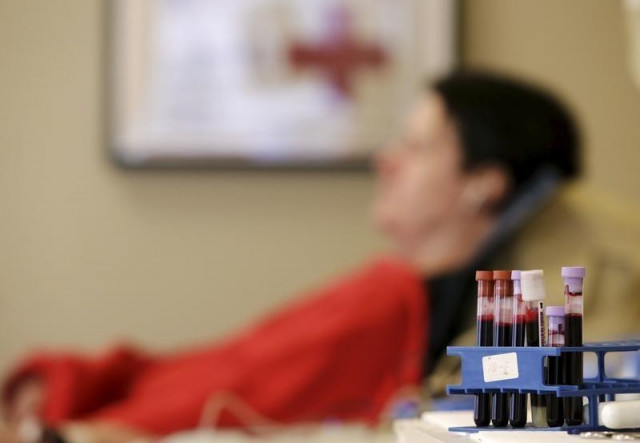Selling plasma is illegal
The onus is on our authorities

A Reuters file image.
Convalescent plasma therapy is an experimental treatment that doctors in Pakistan are widely prescribing for Covid-19. It’s effectiveness? Inconclusive, according to researchers at New York’s Mount Sinai hospital. There are, however, “glimmers of hope”, doctors at John Hopkins University say. Whether or not plasma therapy works is probably best left to the experts and for another day.
Related though is the growing extortion of this elixir which, while in desperate demand, has a supply that is drastically failing to keep up. As a donor then, is it ethical to profit off of selling plasma to a patient in severe need? Or to the shallower inquiry — is trading plasma even legal? It is not. And I’ll explain why.
In 2010, Pakistan initiated countrywide blood safety reforms with provincial efforts to improve blood safety by enacting a regulatory framework and forming blood safety authorities. Under the laws, provincial blood safety authorities regulate the safe supply, and use of blood components including plasma. Typically, the authorities are headed by provincial ministers of health.
Broadly, blood safety laws apply to all hospitals and clinical units, public or private, involved in the blood transfusion chain including plasma. This means collection, testing, screening, and issuing of plasma for transfusion is strictly regulated or at least it’s supposed to be. In theory, provincial authorities are responsible for ensuring prescribed standards in blood safety are met. Any violations by hospitals or clinical units can lead to suspensions or de-licensing.
Responsibility for blood safety, however, also falls upon hospitals and clinical units individually where everything is put into practice. Under the law, hospitals and clinical units involved in the blood transfusion chain are required to designate an authorised person, who is to ensure every unit of blood or plasma is collected according to blood safety laws. Intriguingly, our provincial laws stress on voluntary and free blood donations, including plasma. What does that spell? Any blood component being collected, screened, and transfused has to occur without compensation to the donor. And hospitals or clinical units are under a duty to ensure the commerce of plasma does not take place as long as they’re handling it, irrespective of where it’s coming from, and despite the patient’s willingness to pay.
Failing to maintain compliance in a hospital or clinical unit can carry penal consequences, including imprisonment and fines, for personnel involved in the blood transfusion chain. As for the provincial authorities’ oversight, it’s probably anyone’s guess. But it’s high time they step in.
Granted, strict enforcement is likely to disincentivise opportunistic plasma donors, cutting their numbers, and putting more pressure on patients-in-need. But absent regulation, the inducement to monetise a rare-in-supply commodity will only grow, increasing exploitation on economically-deprived patients. With rapidly increasing cases, and the promise of convalescent plasma therapy, demand for plasma will continue to outpace supply, making its trade appear more lucrative. Further, the commercial exchange of plasma is known to have disparate impacts on different income-segments of society, as in the United States. In a battered economy, poorer people are likelier to engage in auctioning off their body for much-needed income. It’s also dehumanising, cultivating a notion that the human body is merely a commodity that can be bought at the right price-tag.
Our blood safety laws are in effect, and governmental bodies functioning, yet the illicit auctioning of plasma continues unhindered. On an individual level, we must hold hospitals and clinical units accountable. More urgent, however, is governmental intervention. Until there’s a cure, Covid-19 is here to stay — and so is the need for plasma. The onus is on our authorities, who ought to intervene before the commercial exchange of plasma evolves into a more organised, criminal racket that capitalises people’s desperation.
Published in The Express Tribune, June 22nd, 2020.
Like Opinion & Editorial on Facebook, follow @ETOpEd on Twitter to receive all updates on all our daily pieces.















COMMENTS
Comments are moderated and generally will be posted if they are on-topic and not abusive.
For more information, please see our Comments FAQ